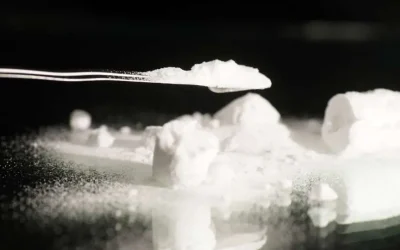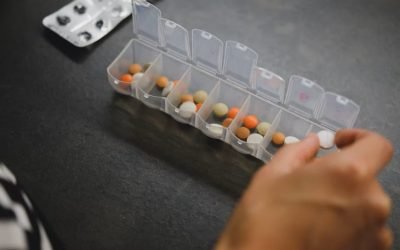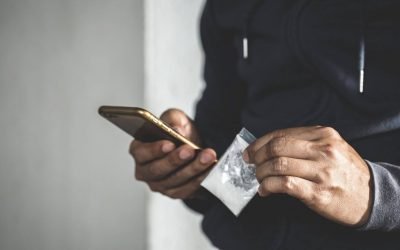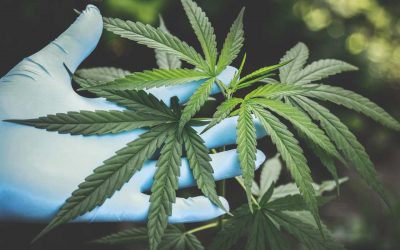Last updated: October, 2025.
Recognising a drug addiction isn’t always easy, not for others and not for yourself. What begins as occasional or recreational use can slowly become something more serious. When the brain and body start to depend on a substance, stopping can feel harder than expected.
If you’ve ever asked yourself “Do I have a problem with drugs?”, you’re not alone. Many people begin using drugs casually, seeking comfort, energy, or escape, without realising how quickly a habit can take hold. Understanding the signs of addiction is the first step toward taking back control and finding the right help.

When Does Drug Use Become an Addiction?
Many people start using drugs to feel good, relieve stress, or forget difficult emotions. At first, it may feel manageable. But over time, the brain begins to link the drug to pleasure and relief. The more often it happens, the stronger the connection becomes — until the brain believes the substance is necessary to feel “normal.”
Drug addiction, also known as substance use disorder, occurs when someone compulsively seeks and uses drugs despite knowing the harm it causes. This can happen with both illegal substances and legal medications such as opioids or prescription painkillers.
In the past, addiction was seen mainly as a matter of willpower or moral weakness. Today, we know it’s a complex brain condition. Repeated drug use alters the brain’s reward system, making it difficult to resist cravings and control impulses. The addiction, in many ways, becomes an addiction to the brain’s own reward response rather than to the drug itself.
Common Types of Drug Addiction
Addiction can develop with a wide variety of substances, including:
- Cocaine
- Cannabis
- Ecstasy (XTC)
- Speed (Amphetamines)
- Ketamine
- GHB
- LSD
- Heroin
- Opioids and prescription painkillers
Each substance affects the body and mind differently, but all can create powerful psychological and physical dependence. Even substances perceived as “milder,” such as cannabis or prescription medication, can cause serious health, emotional, and social problems when used excessively or over time.
How to Know If You Might Have a Drug Addiction
Recognising addiction early makes recovery easier and increases the chances of success. While only a professional can diagnose a substance use disorder, these are some of the most common warning signs that drug use may have crossed the line into addiction:
- Feeling a strong urge or compulsion to use the drug regularly
- Needing larger amounts to achieve the same effect (tolerance)
- Thinking constantly about the next time you’ll use
- Hiding or lying about your use
- Neglecting work, school, or family responsibilities
- Losing interest in hobbies or social activities
- Using despite conflicts, health issues, or financial stress
- Isolating from friends and family
- Feeling anxious, depressed, or irritable when you can’t use
- Trying to stop but being unable to
- Experiencing withdrawal symptoms when you stop
If several of these apply to you, it’s worth speaking with a professional. Many people continue using drugs not because they want to, but because stopping feels impossible without help. Recognising this pattern is the first sign of awareness, not weakness.
How Is Drug Addiction Diagnosed?
Addiction is a recognised medical condition, and only a qualified health professional can confirm a diagnosis. During an assessment, they will look at your relationship with drugs over the last 12 months, considering how use has affected your health, emotions, and daily life.
At Hacienda Paradiso, our experienced clinical team offers confidential consultations to help determine whether what you’re experiencing meets the criteria for a substance use disorder. The goal isn’t to label you but to understand your situation and design a treatment plan that works for your needs.
Many people are surprised to learn that addiction often develops gradually and can be treated at any stage. Seeking clarity and asking for help shows courage and self-awareness, not failure.
Why Professional Help Matters
Trying to stop using drugs alone can be dangerous, especially if you’ve developed physical dependence. Withdrawal symptoms can range from anxiety and fatigue to severe medical complications. That’s why medical supervision is essential for safety during detoxification.
At Hacienda Paradiso, we offer a safe and supportive environment for guests to detox under expert care. Once the body stabilises, therapy begins to address the emotional and psychological roots of addiction, helping our pacients understand what drives their behaviour and how to build new coping strategies.
Our holistic approach treats the whole person, not just the symptoms. We combine evidence-based therapies like Cognitive Behavioural Therapy (CBT) and trauma work with mindfulness, physical wellness, and long-term aftercare. Each guest receives an individualised recovery plan focused on sustainable change and personal growth.
The Impact of Addiction and the Hope of Recovery
Addiction can affect every part of life: relationships, work, finances, and health. But recovery is always possible. With the right support, people rebuild their confidence, repair their relationships, and rediscover purpose and balance.
Rehab is not just about quitting drugs; it’s about learning to live differently without relying on substances to cope or feel good. The earlier you seek help, the greater the chance of full and lasting recovery.
Taking the First Step
If you’re worried about your drug use or concerned for someone close to you, reaching out for help is the most important first step. The process begins with a simple conversation, free and fully confidential.
At Hacienda Paradiso, we offer free, confidential consultations with our therapeutic team to discuss your situation and explore options for recovery. Whether you need detox, therapy, or ongoing support, we’re here to help you start the journey toward a healthier, more fulfilling life.
Frequently Asked Questions
Yes. Many people don’t recognise their addiction because they believe they are in control. Over time, drug use becomes a habit that feels necessary to function, even when it causes harm or distress.
Early signs include craving, hiding or lying about use, losing interest in hobbies, missing responsibilities, and feeling anxious or irritable when you can’t use. These signs often appear before physical dependence develops.
If drugs are affecting your mood, health, relationships, or work — or if you’ve tried to stop and couldn’t — it’s time to seek help. Rehab provides a structured and supportive space to safely begin recovery.
Yes. Drug addiction is a treatable condition. With medical supervision, therapy, and aftercare, most people can achieve lasting recovery and rebuild their lives.
Rehab usually begins with detox to manage withdrawal safely. Then, therapy helps uncover the emotional roots of addiction and teaches coping strategies. Holistic care, like mindfulness and physical wellness, supports long-term healing.
Hacienda Paradiso offers personalised treatment for all forms of drug addiction. Guests receive medical detox, therapy, and 12 months of aftercare in a private, eco-conscious setting designed for sustainable recovery.









